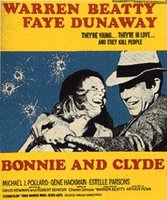 Nothing But a Man (Michael Roemer, 1964)
Nothing But a Man (Michael Roemer, 1964)Nothing But a Man (Michael Roemer, 1964
Rating: 9.4
This was the second time I've seen this film which was one of the first and most important films part of the independent black film movement.
Discussion board response:
Subject: Race issues at work...
Both Duff and Griffin have to endure the arduous and demeaning chore of trying to find work in a white world. Both in the book "Black Like Me", and the film "Nothing But a Man", we see the white bosses portrayed as suspicious of the black employees and often talk down to them. Griffin describes how most Negroes play the obedient stereotyped role to avoid confrontation, and we see similar behavior in the film. At the mill Duff's coworkers ignore his plea for them to unify and stand up for themselves, and one even rats him out to the boss. Unfortunately these instances as well as many other acts of discrimination were common during this period of racial tension in the United States and are controversially brought to the reader's and spectator's attention in Griffin's book and in the film.


 Nothing But a Man (Michael Roemer, 1964)Nothing But a Man (Michael Roemer, 1964
Nothing But a Man (Michael Roemer, 1964)Nothing But a Man (Michael Roemer, 1964